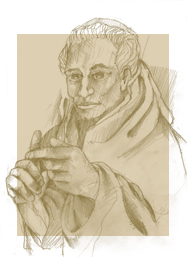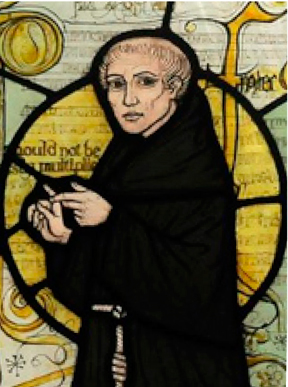

Entia non sunt multiplicanda praeter necessitate.
William of Ockham (c. 1285-1349), author of the Ockham’s Razor principle.
WILLIAM OF OCKHAM
Science: a matter of discovery
William of Ockham (c. 1287-1347) was an English Franciscan Friar, scholastic philosopher and theologian, as well as a great scientific thinker of the 14th century. To Ockham, science was a matter of discovery.
One important contribution that Ockham made to modern science and intellectual culture was efficient reasoning based on the principle of parsimony that came to be known as Ockham's Razor.
This maxim states that one should always opt for an explanation in terms of the fewest possible causes, factors, or variables. The principle says that one should not multiply entities beyond necessity: Entia non sunt multiplicanda praeter necessitate.
Among competing hypotheses, the hypothesis with the fewest assumptions should be selected.
